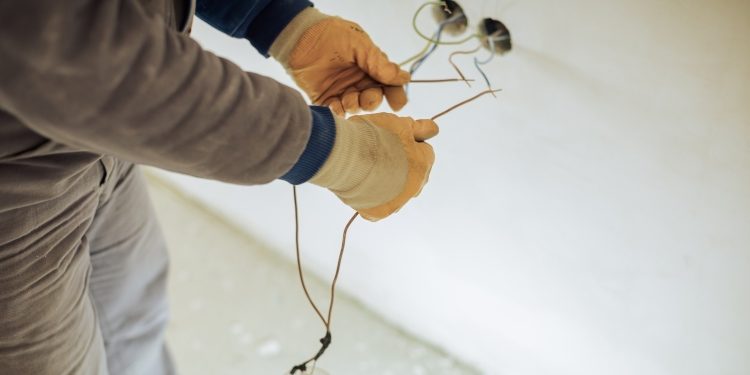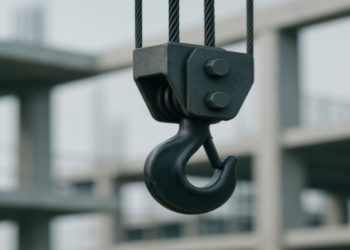Electrical work is an essential aspect of our modern lives, powering our homes, workplaces, and countless devices. While DIY projects can be a satisfying way to save money and learn new skills, electrical work is one area where taking a do-it-yourself approach can be exceptionally dangerous. In this article, we will explore why DIY electrical work is a shocking risk that is best left to trained professionals.
Safety Hazards
One of the most compelling reasons to avoid DIY electrical work is the inherent safety hazards. Electricity poses a significant risk of injury or death if mishandled. Licensed electricians undergo extensive training to understand the intricacies of electrical systems and how to work with them safely. They are well-versed in the legal requirements and standards, whether that’s the National Electrical Code (NEC) for the US or BS 7671 Electrical Wiring Regulations Guide for the UK.
Professionals are equipped with the knowledge and tools to manage electrical risks, such as electrocution, fires, and electrical shocks.
Legal Compliance
In most countries, electrical work is highly regulated, and permits or authorisation is required for many types of electrical projects. DIY electrical work may not comply with local building requirements and safety standards, which can result in costly fines or the need to redo the work.
Licensed electricians are familiar with these regulations and ensure that their work meets all legal requirements. Hiring a professional ensures that your electrical projects are completed legally and safely, protecting you from potential legal consequences.
Taking on an unlicensed or poorly qualified individual may be tempting if they are offering a very low price. However, the risks are very real to you, your family, and your home. This is when you could find yourself looking at legal options for electric shock injuries.
While accidents can and do happen even with the most experienced of tradespeople, knowingly taking someone on who isn’t competent or insured could mean some real issues should the worst-case scenario become a reality. No matter who might be to blame for the injuries, it is essential that you get legal advice as soon as possible to fully understand your options.
Complexity of Electrical Systems
Electrical systems can be incredibly complex, with multiple circuits, wires, and components interconnecting throughout a building. Understanding how these systems work and how to modify or repair them requires in-depth knowledge and experience.
Professionals have the expertise to diagnose issues accurately, install new circuits, and upgrade existing systems, ensuring that your electrical needs are met efficiently and safely.
Avoiding Costly Mistakes
DIY electrical work often leads to costly mistakes. Simple errors, like incorrect wiring or inadequate grounding, can result in electrical problems, damaged appliances, or even fires. Repairing these mistakes can be more expensive than hiring a professional in the first place.
Electricians are trained to identify potential issues before they become costly problems, saving you both time and money in the long run.
Insurance Concerns
Performing DIY electrical work can also have implications for your home insurance. Many insurance policies require that electrical work be carried out by licensed professionals. If you attempt DIY electrical work and something goes wrong, your insurance provider may deny a claim, leaving you responsible for the damages.
Hiring a licensed electrician ensures that your work is covered by insurance and reduces the risk of complications in case of an incident.
Specialized Equipment
Electrical work often requires specialized tools and equipment that DIY enthusiasts may not have access to. Electricians are equipped with the right tools to complete the job safely and efficiently. Attempting to perform electrical work without the proper equipment can increase the risk of accidents and damage to your property.
How To Find A Qualified And Insured Electrician
Finding a qualified and insured electrician is crucial to ensure that your electrical projects are completed safely and up to code. Here’s a step-by-step guide on how to find a reputable electrician:
Ask for Recommendations
Start by asking friends, family, neighbors, or coworkers for recommendations. Personal referrals are often the best way to find a reliable electrician.
Check Online Directories
Online directories such as Yelp, Angie’s List, or HomeAdvisor can provide listings of local electricians. These platforms often include reviews and ratings from previous customers, which can help you gauge their quality of work.
Contact Local Electrical Associations
Electrical trade organizations often maintain directories of licensed and insured electricians. For example, in the United States, you can check the National Electrical Contractors Association (NECA) or the Electrical Contractors’ Association (ECA) for referrals.
Search on Social Media
Social media platforms like Facebook or LinkedIn can also be useful for finding local electricians. Many professionals maintain business profiles that showcase their services and customer reviews.
Check Licensing and Insurance
Verify that the electrician is licensed and insured. Licensing requirements vary by location, so check with your local authority or electrical licensing board to understand what’s required in your area. Insurance is crucial to protect both you and the electrician in case of accidents or damages during the project.
Ask for References
Request references from potential electricians. Contact these references to inquire about their experiences working with the electrician. Ask if they were satisfied with the work, whether it was completed on time and on budget, and if any issues arose.
Interview Multiple Electricians
Don’t settle for the first electrician you come across. Interview multiple candidates to compare their qualifications, pricing, and availability. During the interviews, ask about their experience with similar projects and their approach to problem-solving.
Obtain Multiple Quotes
Request written quotes from several electricians for your project. Make sure the quotes include a breakdown of costs, the scope of work, materials to be used, and the estimated timeline.
Review the Contract
Before hiring an electrician, carefully review the contract. Ensure that all terms, including pricing, payment schedule, warranties, and project timelines, are clearly defined and agreed upon in writing.
Ask About Warranties
Inquire about any warranties or guarantees offered by the electrician for their work. A reputable electrician should stand behind their craftsmanship.
Trust Your Instincts
Finally, trust your instincts. Choose an electrician with whom you feel comfortable, who communicates clearly, and who addresses your questions and concerns promptly.
Conclusion
While DIY projects can be a fulfilling and cost-effective way to improve your home or tackle various tasks, electrical work is an area where safety should always be the top priority. The risks associated with taking a DIY approach make it clear that electrical work is best left to trained professionals.
Hiring a licensed electrician ensures that your electrical projects are completed safely, legally, and with peace of mind. When it comes to electricity, taking shortcuts or attempting to save money can have shocking consequences that are best avoided.
David Prior
David Prior is the editor of Today News, responsible for the overall editorial strategy. He is an NCTJ-qualified journalist with over 20 years’ experience, and is also editor of the award-winning hyperlocal news title Altrincham Today. His LinkedIn profile is here.




![7 Best POS Software in the UK [2026 Edition]](https://todaynews.co.uk/wp-content/uploads/2026/02/7-Best-POS-Software-in-the-UK-2026-Edition-360x180.png)








































































